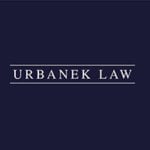-
Overview
Despite the ongoing geopolitical uncertainties, the Portuguese real estate market continues to attract international attention in 2025, consolidating the strong performance it has shown over the past few years.
Demand continues to be driven by multinational companies, digital nomads, entrepreneurs, students, and residents, supported by factors such as the country’s mild climate, high quality of life, safety, solid infrastructure, and a skilled, English-fluent workforce. In turn, the supply of housing continues to be limited, particularly in metropolitan areas such as Lisbon and Porto, as well as in key coastal regions like the Algarve.
According to the National Statistics Institute (INE), in the second quarter of 2025, housing prices increased in 19 of the 24 municipalities with more than 100,000 inhabitants. The average price of the 41,608 family dwellings traded in Portugal was €2,065/sqm, following a rate of change of 19.0% compared to the second quarter of 2024 (18.7% in the previous quarter). The number of family housing transactions in Portugal increased by 15.6% compared to the same quarter of 2024. The average housing price increased, compared to the same period in 2024, in the 26 NUTS III sub-regions, with Baixo Alentejo standing out with the highest growth (38.7%).
In brief, the Portuguese real estate market continues to show solid fundamentals and remains an appealing destination for both domestic and international investors.
-
What is the main legislation relating to real estate ownership?
The main legislation relating to real estate ownership in the Portuguese jurisdiction is:
- The Constitution of the Portuguese Republic, which is the fundamental law in the Portuguese legal framework and classifies the right to private property as a fundamental right;
- The Portuguese Civil Code, which, in general terms, regulates the relationships between private parties, including specific parts on the lease agreements, property and other rights over assets;
- The Legal Framework of Urban Development and Construction (“RJUE”) which provides for the legal regime applicable to the licensing of the constructions and infrastructure works;
- The General Regulation of Urban Construction (“RGEU”) which sets out the technical requirements applicable to the constructions;
- Decree-Law no. 268/1994, October 25, which foresees the legal regime applicable to the horizontal property;
- Decree-Law no. 39/2008, July 7, which establishes the legal regime applicable to tourism undertakings;
- Decree-Law no. 128/2014, of August 29, which provides for the legal regime on the operation of local accommodation establishments;
- Law no. 6/2006, of February 27, which foresees the new regime of urban leases;
- Decree-Law no. 294/2009, of October 13, which establishes the new regime of rural leases; and
- Decree-Law no. 84/2021, of October 18, which sets out the rights of consumers in the case of a lack of conformity of digital goods, content or services, and provides for certain subjective and objective requirements for assessing conformity.
-
Have any significant new laws which materially impact real estate investors and lenders come into force in the past year or are there any major anticipated new laws which are expected to materially impact them in the near future?
Since 2023, the Portuguese Government has been taking measures to address the shortage of housing in Portugal through legislative packages such as the More Housing Program (“Programa Mais Habitação”) and the urban planning “Simplex” program.
In 2025, the Portuguese Government has approved additional sets of measures aimed at increasing housing supply.
Decree-Law no. 117/2024, of December 30, modified by Law no. 53-A/2025, of April 9 – Reclassification of Land
Decree-Law no. 117/2024 amends the Legal Framework for Territorial Management Instruments (Regime Jurídico dos Instrumentos de Gestão Territorial – RJIGT), entered into force in late December 2024. It was subsequently modified by a Parliament Law, which aimed to put an emphasis on public housing and affordable leasing in what regards the reclassification of rustic areas / greenfields to urban areas and to limit the powers of Municipalities in this ambit. It also establishes new rules related with the allowed location, economic grounds and conditions applicable to infrastructures for the purpose of reclassifying rustic land to urban land. On the other hand, it aims to simplify urban planning procedures, including allowing increases in building density up to 20% when part of the project is allocated to public housing or affordable leasing.The same Law also aims to create new rules for the updating of the municipal planning instruments, which are the instruments that distinguish rustic from urban areas, establishing a new set of legal competences to be shared between the municipalities and the Government for the purpose of this updating or for possible suspension of part of these plans when the updating does not take place.
The aforementioned legal diplomas may eventually create new opportunities for investors in land previously restricted to rural use and may gradually expand housing supply, but the new Law focuses very much on public housing and affordable leasing. The outcome of the new Law is still to be confirmed. It entered into force retroactively on December 31, 2024 and its effects will endure until the end of 2028. These new laws will probably have more impact when combined with the measures envisaged by the Government for 2026.
Decree-Law no. 16/2025, of March 18 – Changes to the property cadastral system (“cadastro predial”)
The legal diploma modifies Decree-law no. 72/2023, of August 23, which establishes the legal regime of the property structure system (“cadastro predial”). In summary, the recently approved legal diploma eliminates the requirement that a simple execution procedure (“operação de execução simples”) be performed prior to legal acts affecting properties that are not yet registered in the “cadastro predial” and of those that were left in a state of deferred registration (“cadastro diferido”) under the experimental property structure regime. In other words, for such properties (those non-registered in the “cadastro predial” and those under deferred status), certain legal acts (e.g. transfer, encumbrance) can now proceed without having to do the prior property execution step. By removing that prior requirement, the new rule aims to reduce procedural friction and simplify transactions over properties which have not yet been fully integrated in the property structure system. It also implies some other changes to the procedures to follow in what regards the undertaking of land division or transformation.Decree-Law no. 44/2025, of March 27 – 1.º Direito – Programa de Apoio ao Acesso à Habitação
This Decree-Law approves a special subsidy scheme for housing solutions and amends the “1.º Direito” program, with the purpose of mitigating the supply crisis and simplify access to housing, especially for applications not covered by the Recovery and Resilience Plan (PRR) and with a focus on renovation and construction. The Recovery and Resilience Plan is a nationwide program, approved and financed by the European Commission, with an implementation period until 2026, that will implement a set of reforms and investments aimed at propelling the country towards recovery, sustained economic growth, and convergence with Europe over the next decade.Resolution of the Council of Ministers no. 110/2025, of September 25 – Habitation stimulus
On September 25, 2025, our Cabinet has issued a preliminary approval of a new package of legislation aiming to promote and stimulate the housing market and the construction industry, which are expected to be approved and detailed in the 2026 State Budget and in other diplomas.Summarizing, the new envisaged Government measures include:
- Simplification of the leasing rules, aiming to increase the residential offer;
- Creation of tax incentives to stimulate private offer of residential units;
- Modification of the Personal Income Tax Code in view of establishing incentives to the leasing and real estate market, within certain limits;
- Modification of the VAT Code, in view of lowering the applicable rate to construction of certain types of residential units and of creating tax incentives for the construction and building refurbishment activity in the ambit of average cost units;
- Modification of the licensing law, in view of simplifying procedures and shortening deadlines (this modification is about to be submitted to the Parliament, for discussion);
- Implementation of BIM (Building Information Modeling);
- Regulation of temporary lodging units, notably those destined to construction workers;
- Additional orientations for the future regulation of urban leasing and undivided inheritances.
Some of the announced measures cover, namely the following specific aspects, (i) reduction of the VAT rate to 6% on the construction of homes for sale up to €648,000 or, in the case of rentals, for rents up to €2,300; (ii) increase in the municipal property transfer tax (“IMT”) on the purchase of housing by citizens not resident in Portugal, excluding emigrants (iii) exemption from payment of the additional municipal property tax (AIMI) in the case of housing rented for up to €2,300; (iv) increase in income tax deductions for housing rents to €900 in 2026 and €1,000 in 2027; (v) reduction in the income tax rate for landlords charging moderate rents from 25% to 10%.
There is some work in progress with the banking sector to make access to mortgage loans and construction financing more flexible.
The above-mentioned measures are part of a preliminary initiative that requires follow-up in 2026.
Resolution of the Council of Ministers no. 159/2025, of October 23 – Sale of real estate owned by the State
The Council of Ministers approved a resolution authorizing the sale of a real estate portfolio owned by the State and the company Estamo, S.A. – a public entity which manages the State’s real estate portfolio – for housing purposes or to finance public housing programs. -
How is ownership of real estate proved and are ownership records available for public inspection?
The ownership of real estate is proved by the registry of the property at the land registry office, as well as at the tax authorities. The Portuguese legal system encompasses a national registry system, with several geographical land registry offices, for the registry of ownership and other rights over real estate. Ownership and other rights subject to registry (e.g., mortgages and other encumbrances) are only enforceable against third parties if duly registered.
-
Are there any restrictions on who can own real estate, including ownership by any foreign entities?
There are no restrictions on who can own real estate in Portugal. Notably, there are no restrictions based on the nationality of the natural person or the location of the registered head offices of legal entities who intend to acquire real estate in Portugal. However, any natural person or legal entity who intends to purchase real estate must have the legal capacity to do so, under the applicable law, and must be compliant with Portuguese law. Moreover, acquisition of real estate in Portugal through entities based on certain listed tax places (“tax havens”) may attract negative tax consequences.
-
What types of proprietary interests in real estate can be created?
Within the Portuguese legal system, there are several types of proprietary interests that can be created over real estate. The more common proprietary interests are:
- full ownership, which includes full and exclusive right of use, enjoyment, and disposal of the property;
- co-ownership, in which two or more persons hold ownership rights over the same property and, as a rule, have to contribute to the necessary expenses in proportion to their respective interests in the property;
- usufruct right, which grants its holder the powers of use, enjoyment, and administration of a property owned by another person, during an agreed period or in perpetuity;
- surface right, which grants the right to build or maintain, in perpetuity or temporarily, a construction on land belonging to another person, or to plant or maintain plantations on such land;
- lease agreements that grant a temporary right of use of real estate against the payment of a rent;
- lending agreements, which confer a temporary right of use of a property without economic compensation.
-
Is ownership of real estate and the buildings on it separate?
In principle, under Portuguese law, the owner of the land is also the owner of the constructions made over (or below) that land. Nevertheless, it is possible to separate both rights, by creating a surface right over the land, which consists in the right to build or maintain, in perpetuity or temporarily, a construction on land belonging to another person.
-
What are common ownership structures for ownership of commercial real estate?
In Portugal, various ownership structures can be used for commercial real estate, depending on factors such as the size of the investment, the number of owners, and tax considerations. Common ownership structures include corporate structures, such as, ownership through a limited liability company (“sociedade por quotas”) or a public limited company (“sociedade anónima”) and collective investment undertakings, notably ownership through real estate investment funds known in Portugal as “OIA Imobiliários”. In addition, it is also possible to assign the exploitation and/or the management of commercial or offices centres to an entity different to the owner of the asset.
-
What is the usual legal due diligence process that is undertaken when acquiring commercial real estate?
The due diligence process is not mandatory, but it is common practice and highly recommendable. The scope of the due diligence varies significantly depending on the dimension and complexity of the transaction. For retail low value transactions, the due diligence consists basically in confirming the ownership, that there are no mortgages, charges or other encumbrances registered over the property, that there are no outstanding taxes related to the property and that all the other documents required for the deed (e.g., energy certificates) are valid and updated. In general terms, the due diligence implies (i) obtaining the land registry certificate of the property to check if the vendor is the registered owner of the property, if there are any mortgages, charges or encumbrances over the property and if the property is correctly described and there are no inconsistencies between the legal and tax certificates; (ii) carry out searches to confirm that there are no outstanding municipal property taxes related to the property; (iii) confirm that the use permit and the energetic certificate issued for the property are valid; and (iv) if applicable, check the horizontal property deed and confirm that there are no outstanding debts to the condominium administration.
For larger transactions, it is usual to conduct a much more thorough due diligence exercise on the property, including not only the ownership, charges and taxes, but also any agreements with third parties, urban, planning, licensing, and environmental aspects. It would also be usual to conduct a technical due diligence on the property. The tax and legal due diligence are generally based on the documentation provided by the seller and on the documentation and information made available by the public relevant entities (land registry offices, tax departments, municipalities, etc.).
-
What legal issues (if any) are outside the scope of the usual legal due diligence process on an acquisition of real estate?
Depending on the agreed scope, due diligences can cover almost all and every legal relevant aspect related to the real estate. However, there are certain legal issues that may only be identified through a site inspection, such as certain environmental issues, unknown illegal occupants, non-authorized works and, in general, compliance with planning and building regulations. For large transactions, it is customary and advisable to conduct a technical due diligence.
-
What is the usual process for transfer of real estate, and when does liability pass to the buyer?
The transaction of a real estate in Portugal normally begins with the execution of a promissory sale and purchase agreement (“PSPA”), which establishes the terms and conditions of the sale, according to which the owner promises to sell, and the purchaser promises to buy, the property, at an agreed price and within an agreed period. This agreement usually involves the payment of a deposit (“sinal”). The final deed is typically subject to the non-exercise of any applicable pre-emption rights (meaning that after the execution of the PSPA, the public and private entities who are entitled to such pre-emption rights must be notified of the intended sale and purchase, in order to exercise or waive their pre-emption rights within the applicable time limit), but it can also be subject to other conditions such as the promissory purchaser raising a loan to finance the acquisition of the property or the promissory seller obtaining all the documents required for the sale. Unless otherwise agreed between the parties, in case the buyer fails to complete the purchase, he will lose the deposit paid under the PSPA; if, on the contrary, the seller fails to complete the sale, he must repay the amount of the deposit in double. Once all the conditions precedent agreed by the parties are fulfilled, the real estate transaction is completed through the execution of a notarial deed or an authenticated document (with similar force to the deed) signed between the seller and the purchaser. The sale and purchase deed must be preceded by liquidation and payment of municipal property transfer tax (“IMT”) and stamp duty tax (“imposto do selo”). Finally, upon the execution of the sale and purchase public deed, the acquisition is subject to registration both at the land registry office and at the tax authorities.
-
Is it common for real estate transfers to be effected by way of share transfer as well as asset transfer?
For the purpose of transferring a real estate, both assets deals and shares deals are common, depending on the circumstances of the transaction and of the preference of the parties.
-
On the sale of freehold interests in land does the benefit of any occupational leases and income derived from such lettings automatically transfer to the buyer?
Under Portuguese law, and unless otherwise provided for in the lease agreement, the lease agreements are transferred to the purchaser of the leased property. In this event, the landlord must notify the tenant of the sale of the property, informing the tenant of the sale and purchase and that the rent shall be owed to the new owner of the property.
It is worth mentioning that the tenant has a pre-emption right on the purchase of the leased property provided that the lease is in force for a period of at least two years.
-
What common rights, interests and burdens can be created or attach over real estate and how are these protected?
Commons rights, interests and burdens that can be created or attached over real estate include mortgages and other charges, leases, free leases (lending), usufruct, surface rights, easements, pre-emption rights, purchase options, sale options, retention rights and other covenants. In general, these rights must be registered at the land registry office to be effective vis-à-vis any third parties.
-
Are split legal and beneficial ownership of real estate (i.e. trust structures) recognised?
There is no split between legal title and beneficial ownership of property in Portugal. Trusts are not recognized under Portuguese law. However, there are other methods which can establish a difference between legal title and beneficial ownership, including fiduciary agreements (with inherent limitations).
-
Is public disclosure of the ultimate beneficial owners of real estate required?
There is no requirement for the public disclosure of the ultimate beneficial owners of real estate. The land registry does not recognise a split between legal title and beneficial ownership and thus only the legal owner of property will be recorded. However, it is required by law the identification and the registry of the ultimate beneficial owners of legal entities and, as such, if the property is owned by a company/legal person, the ultimate beneficial owner of that entity will be identified and registered in the central registry of beneficial owners (“RCBE”).
-
What are the main taxes associated with real estate ownership and transfer of real estate?
All the parties in a real estate transaction should bear a Portuguese tax number and moreover any non-EU residents must appoint a tax representative in Portugal, unless they adhere to the electronic notification system. The purchaser will be subject to the following taxes:
- Municipal property transfer tax (“IMT”) to be declared and paid by the purchaser immediately before the transaction (or, in certain circumstances, in the promissory agreement). The IMT rates are 6.5% for urban property, 5% for rural property, and 10% if the acquirer is a company resident in a listed tax haven or a company controlled, directly or indirectly, by a company resident in a listed tax haven. For real estate exclusively intended for residential use, progressive IMT rates between 1% and 7.5% will generally apply in accordance with the taxable value of the property. IMT exemptions may apply, for example, on certain acquisitions of real estate meant for urban rehabilitation, or on the acquisition of property for resale purposes by real estate companies, or in the purchase of real estate for permanent residency by first-time home purchasers up to the age of 35, under the terms set forth in Decree-Law no. 48-A/2024, of July 25.
- Stamp duty (“imposto de selo”): the acquisition of a property is also subject to a stamp duty, at a rate of 0.8%, as a rule, levied over the value of the transaction, to be paid by the Purchaser. Stamp duty exemptions may also apply in the purchase of real estate for permanent residency by first-time home purchasers up to the age of 35, under the terms established in Decree-Law no. 48-A/2024, of July 25;
- Municipal property tax (“IMI”): every year, the owner of any property is subject to the payment of an annual municipal property tax. The payment encumbers the owner of the property on 31st December of each year. If the tax amount does not exceed €100, the total amount will be paid in May. For taxes amounts between €100 and €500, the total will be divided into two instalments, the first due in May and the second due in November. If it exceeds €500, an additional August instalment is added to these other two mentioned above. The IMI rates are the following, applied over the property’s registered tax patrimonial value: 0.8% for rural property; between 0.3% to 0.45% for urban property, depending on the municipality. Municipal urban IMI rates are revised each year.
Usually, the transfer of property does not attract Value Added Tax (“VAT”), although in certain cases the seller may waive the exemption of VAT if, amongst other conditions, the buyer uses, in whole or in part, the building for taxable activities and is itself subject to VAT. On the seller’s side, the sale can generate taxable earnings, in accordance with its annual statements.
-
What are common terms of commercial leases and are there regulatory controls on the terms of leases?
The Portuguese legislation for commercial leases includes several mandatory provisions. Subject to these provisions and other applicable mandatory provisions of the Portuguese law, the parties may establish the content of the lease agreement and their respective rights and obligations as they deem better. Typically, commercial leases include the following main terms and conditions:
- duration of the lease;
- rent and the method of payment;
- rent review mechanism;
- renewal of the lease;
- permitted uses and identification of restrictions on the use of the property;
- landlord’s and tenant’s responsibilities regarding the maintenance and repair of the property;
- assignment of the contractual position and subletting;
- charges and expenses associated with the property, such as taxes and condominium fees;
- works to be carried out on the property;
- termination rights and obligations.
-
What remedies are commonly available for landlords in the event of a tenant breach of a commercial lease?
Under the Portuguese jurisdiction, commercial leases are governed by the provisions set out by the parties in the lease agreement, as well as the legal provisions foreseen in Portuguese Civil Code and complementary legislation. As such, on the commercial lease agreement, the parties are able to establish the terms in which a party could be considered in default and the consequences of such a breach of contract. If the commercial lease agreement fails to include such provisions, the aforementioned legal regime shall apply.
Under article 1041, paragraph 1, of the Portuguese Civil Code, in the event the tenant is in arrears with the obligation of paying rent, the landlord has the right to demand the amounts owed, accrued of a compensation of 20% of such amount. In addition, it is common for the landlord to request a guarantee from the tenant to ensure the fulfilment of contractual obligations. As an example, the landlord may request a cash deposit, a bank guarantee, or a security (“fiança”). In case of breach of contract by the tenant, such guarantee may be used by the landlord to remedy the unfulfillment from the tenant.
The landlord shall be entitled to terminate the commercial lease agreement, in the event of arrears of three months or more in the payment of rent, charges or expenses, for which the tenant is responsible, or in the event of opposition by the tenant to the carrying out of work ordered by a public authority, or in case of breach of other relevant obligations.
-
How are use, planning and zoning restrictions on real estate regulated?
In general terms, the land use, planning and zoning restrictions in Portugal are regulated by law and by planning instruments which shall be in compliance with the legal framework on planning matters. The planning instruments are divided into different levels: national, regional, intermunicipal and municipal. A practical approach to planning in Portugal includes mostly the municipal level, composed by three planning instruments: the general plan (“PDM”) the master plan (“PU”) and the detail plan (“PP”). National parks, the coastline and protected natural areas are also subjected to special planning instruments, usually specifying restrictions applicable to development. More recently, the Government has also enacted relevant regulations and plans applicable to fire safety and flooding in forest and urban areas, such as the municipal fire safety plans (“PMDFCI”) and flooding risk management plans (“PGRI”). There is also a large set of administrative servitudes and public restrictions in force at national level, aiming to protect natural and heritage values.
On a higher level, it should also be considered the national planning policy program – which, in general, establishes the strategic options relevant to the organisation of the national territory –, and the regional level which includes only the regional programs. Intermunicipal level is currently irrelevant. While most of the national and sector level instruments bind only public entities, municipal plans bind both public and private entities. Please note that the entire Portuguese territory is covered by general municipal plans (“PDM”) which define the main strategy for the preparation of other municipal plans, as well as for the development of sectoral interventions by the state administration in the Municipalities. The elaboration of these plans (“PDM”) is, as a rule, mandatory. The Government is making an effort to make planning instruments more flexible and quicker to approve.
-
Who can be liable for environmental contamination on real estate?
In general, under Portuguese law, the author of the environmental damage caused by the contamination (the polluter) is responsible for its remediation, under the terms of the polluter pays principle. Accordingly, under the terms of the legal regime for liability for environmental damage (Decree-Law no. 147/2008, of July 29), the economic operator is responsible for repairing the environmental damage caused in the exercise of one of the activities listed in annex III of this legal regime and, when the activity is imputable to a legal person, the obligations apply jointly and severally to its directors, managers or administrators. Besides the polluter, the State can also repair the environmental damage caused by contamination, when it is not possible to attribute this responsibility to the author of the environmental damage.
Regarding soil contamination, the non-polluting owner (or possessor) may also be responsible for decontaminating the soil if this is provided for in the applicable planning instruments.
-
Are buildings legally required to have their energy performance assessed and in what (if any) situations do minimum energy performance levels need to be met?
Yes, the buildings are legally required to have their energy performance assessed. The requirements for energy performance assessments and the situations in which minimum energy performance levels need to be met are governed by Decree-Law no. 101-D/2020. In Portugal, the energy performance of buildings is assessed through an Energy Performance Certificate (“certificado energético”). In general terms, the following elements are subject to the energy certification obligation:
- the construction of new buildings;
- major building renovations;
- large commercial and service buildings;
- buildings owned and occupied by a public entity and frequently visited by the public;
- buildings, when they are sold, given in lieu of payment, leased or transferred, provided that this includes the transfer of the physical space in which the establishment is installed;
- buildings that are the target of financing programs to improve energy performance;
- buildings eligible for tax benefits.
Regarding compliance with minimum performance levels, it should be noted that new buildings shall have almost zero energy needs. Minimum energy performance requirements must therefore be complied with in relation to the building surrounding, which are aimed in particular at minimizing the occurrence of pathologies and limiting energy needs in order to achieve comfortable indoor conditions.
-
Is expropriation of real estate possible?
Yes. However, the expropriation of real estate may only be carried out for reasons of public utility included in the powers, purposes or object of the expropriating entity, upon the payment of a fair compensation in accordance with the Portuguese Expropriation Code.
-
Is it possible to create mortgages over real estate and how are these protected and enforced?
Yes, it is possible to create mortgages over real estate. In fact, mortgages are the most widely used security for real estate assets. Mortgage is a security in rem (“garantia real”) that grants the creditor the right to be paid for the value of a certain immovable or similar assets belonging to the debtor or to a third party, with preference over other creditors who do not enjoy special privilege or priority of registration. Thus, the creditor who holds a mortgage has, with a few exceptions, a preference right in the satisfaction of his claim over the other creditors of the owner of the mortgaged property in the event of an enforcement judicial procedure.
-
Are there material registration costs associated with the creation of mortgages over real estate?
Yes, there are material registration costs associated with the creation of mortgages over real estate.
Specifically, according to the Emoluments Regulation for Registries and Notaries, €122 are due for the deed and €500 are due for the registration of the acquisition of a property and of one or more mortgages over the same property.
The Portuguese Government has approved an exemption of registration costs for first-time buyers under the age of 35, under the terms foreseen in the Decree-Law no. 48-A/2024, of July 25.
-
Is it possible to create a trust structure for mortgage security over real estate?
As above referred, trusts are not recognized under Portuguese law. It is disputable whether a mortgage may be registered in the name of a security agent to the benefit of the lending banks.
Portugal: Real Estate
This country-specific Q&A provides an overview of Real Estate laws and regulations applicable in Portugal.
-
Overview
-
What is the main legislation relating to real estate ownership?
-
Have any significant new laws which materially impact real estate investors and lenders come into force in the past year or are there any major anticipated new laws which are expected to materially impact them in the near future?
-
How is ownership of real estate proved and are ownership records available for public inspection?
-
Are there any restrictions on who can own real estate, including ownership by any foreign entities?
-
What types of proprietary interests in real estate can be created?
-
Is ownership of real estate and the buildings on it separate?
-
What are common ownership structures for ownership of commercial real estate?
-
What is the usual legal due diligence process that is undertaken when acquiring commercial real estate?
-
What legal issues (if any) are outside the scope of the usual legal due diligence process on an acquisition of real estate?
-
What is the usual process for transfer of real estate, and when does liability pass to the buyer?
-
Is it common for real estate transfers to be effected by way of share transfer as well as asset transfer?
-
On the sale of freehold interests in land does the benefit of any occupational leases and income derived from such lettings automatically transfer to the buyer?
-
What common rights, interests and burdens can be created or attach over real estate and how are these protected?
-
Are split legal and beneficial ownership of real estate (i.e. trust structures) recognised?
-
Is public disclosure of the ultimate beneficial owners of real estate required?
-
What are the main taxes associated with real estate ownership and transfer of real estate?
-
What are common terms of commercial leases and are there regulatory controls on the terms of leases?
-
What remedies are commonly available for landlords in the event of a tenant breach of a commercial lease?
-
How are use, planning and zoning restrictions on real estate regulated?
-
Who can be liable for environmental contamination on real estate?
-
Are buildings legally required to have their energy performance assessed and in what (if any) situations do minimum energy performance levels need to be met?
-
Is expropriation of real estate possible?
-
Is it possible to create mortgages over real estate and how are these protected and enforced?
-
Are there material registration costs associated with the creation of mortgages over real estate?
-
Is it possible to create a trust structure for mortgage security over real estate?





























